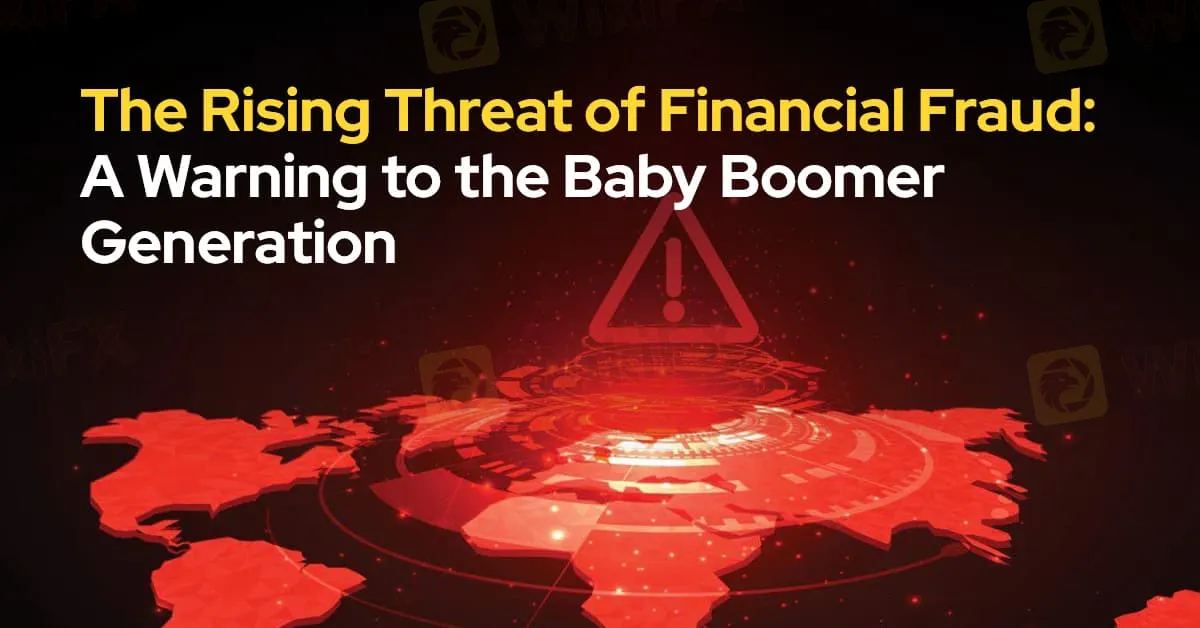简体中文
繁體中文
English
Pусский
日本語
ภาษาไทย
Tiếng Việt
Bahasa Indonesia
Español
हिन्दी
Filippiiniläinen
Français
Deutsch
Português
Türkçe
한국어
العربية
The Rising Threat of Financial Fraud: A Warning to the Baby Boomer Generation
Abstract:Baby Boomers are under siege from advanced financial scams—find out how these sophisticated fraud tactics work and how you can shield yourself from becoming a victim.

Despite widespread awareness about financial scams, the evolving tactics of fraudsters have significantly impacted the Baby Boomer generation. According to the FBIs 2023 data, complaints to the Internet Crime Complaint Centre have risen by 14%, with losses reported by individuals aged 60 and above increasing by 11%.
Ed Mahaffy and Patrick Marcinko, financial planners at Go Banking Rates, have identified four prevalent scam methods and highlighted how advancements in technology, including artificial intelligence (AI), are contributing to the digital evolution in banking and investment sectors. Due to their lack of experience with digital technologies and frequent online activity, Baby Boomers are particularly vulnerable to these scams.

Fraudsters may pose as officials from agencies such as the IRS to steal money or personal information. Marcinko notes that many Baby Boomers are nearing retirement or are already retired, making them prime targets for IRS impersonation scams. It is crucial to remember that the IRS will never contact individuals via phone calls or text messages. The FBI reports a 32% increase in government impersonation scams last year. To avoid falling victim, refrain from providing payment information over the phone to unsolicited contacts.

Scammers may use technology to mimic the voice of someone familiar, making it increasingly difficult to detect such frauds. Marcinko explains that fraudsters might impersonate a child's voice to request money, complicating the verification process. If you encounter this scenario, hang up and call your child directly to confirm their safety.

Fraudsters pretending to be technical support personnel may deceive older adults by claiming their accounts have been compromised. They then persuade victims to download software that allows remote access to their computers. These scammers, posing as bank officials or other trusted figures, will instruct victims to transfer funds to a so-called “secure” account, which actually directs the money to the scammers. Mahaffy emphasizes that these “ghost hacker” scams typically involve receiving a call, text, email, or pop-up message instructing the victim to call a number for help, followed by downloading harmful software.

With the rise of online shopping, phishing scams targeting the Baby Boomer generation have surged. Scammers may impersonate retailers to send password reset emails, which, once the password is entered, are used to access and steal from the victims accounts. Additionally, phishing attacks might involve sending fake invoices or receipts. Opening these documents can trigger the automatic download of malicious software designed to steal personal information and access financial assets. Marcinko advises using multi-factor authentication wherever possible to enhance account security.
Mahaffy cautions against engaging with unfamiliar digital activities. Be wary of clicking on pop-ups or links, responding to unknown phone calls, or downloading unsolicited software. Staying vigilant and informed is essential to protecting oneself from these increasingly sophisticated financial threats.

Disclaimer:
The views in this article only represent the author's personal views, and do not constitute investment advice on this platform. This platform does not guarantee the accuracy, completeness and timeliness of the information in the article, and will not be liable for any loss caused by the use of or reliance on the information in the article.
Read more

Gold Breaks $3,300 Barrier—Time to Celebrate or Caution?
Gold hits record high—rally or risk ahead?

SEC Warns of Love Scams and Pig Butchering Investment Schemes
SEC's new campaign warns about relationship investment scams, highlighting red flags, losses, and protective measures. Stay safe from "pig butchering" schemes.

WeTrade Secures CySEC License to Expand EU Trading Services
WeTrade secures a CySEC license, allowing EU-wide operations. The approval boosts services, partnerships, and trust across the global trading community.

Beware of Gold Bar Investment Scams: Rising Threats
Gold bar scams surge in 2025 as gold prices hit $3,000/oz, targeting seniors. Learn how scammers exploit trust in gold and tips to avoid these frauds.
WikiFX Broker
Latest News
eXch Exchange to Shut Down on May 1 Following Laundering Allegations
How a Viral TikTok Scam Cost a Retiree Over RM300,000
JT Capital Markets Review
FCA Proposes Simplifying Investment Cost Disclosure for Retail Investors
Fresh Look, Same Trust – INGOT Brokers Rebrands its Website
Beware of Gold Bar Investment Scams: Rising Threats
Finalto Teams Up with Alphaville for 2025 London Quiz
Elites Gather in Taipei to Forge a New Forex Ecosystem
Kraken Launches Forex Perpetual Futures on Kraken Pro Platform
WeTrade Secures CySEC License to Expand EU Trading Services
Currency Calculator


